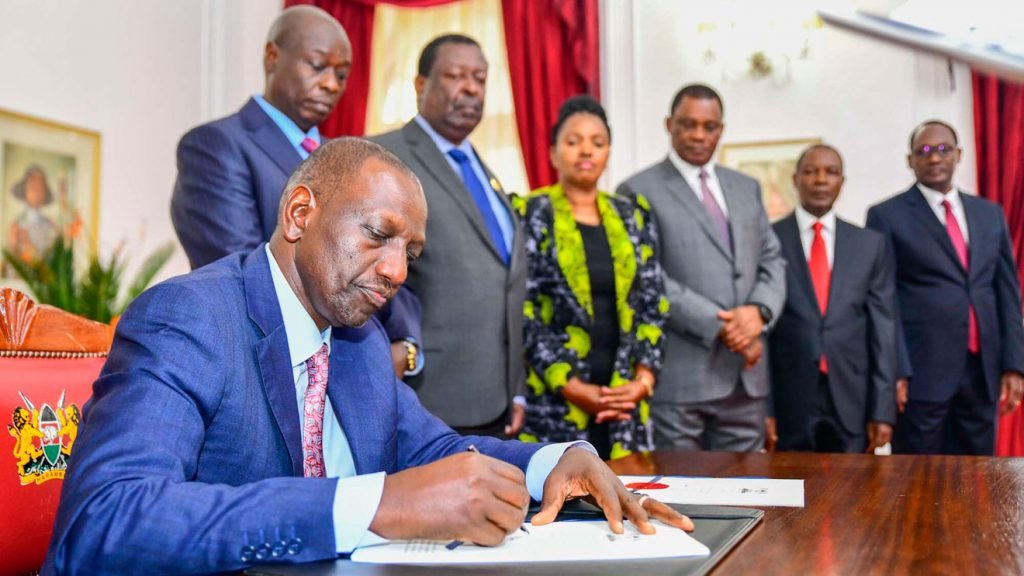Kenyans are set to be subjected to new deductions geared towards the construction of affordable houses in the country after President William Ruto signed a new law on the programme.
The President, on Tuesday March 19, 2024, signed into law, the Affordable Housing Bill (National Assembly) Bill 75 of 2023, after both the National Assembly and the Senate approved the Bill.
The bill sought to, among other things, align the housing programme with the Constitution and other laws.
It also sought to establish a framework for the collection of the housing levy in line with a ruling issued by the High Court last year.
Ruto signed the Bill into law at State House Nairobi, accompanied by leaders including Speaker of the National Assembly Moses Wetang’ula, his senate counterpart Amason Kingi among others.
The signing of the Bill now paves way for the collection of funds towards the construction of affordable houses in the country as had been envisioned by the Kenya Kwanza administration.
The enactment of the Bill will see Kenyans gain access to various categories of affordable housing.
The bottlenecks of Big Four’s affordable housing
The categories comprise affordable social housing units, targeting persons whose monthly income is below Sh20,000, affordable housing units targeting persons whose monthly income is between Sh20,000 and Sh140,000, affordable middle-class housing units accessible to persons earning over Sh140,000 per month and a rural affordable housing unit targeted at Kenyans living in areas not classified as urban areas.
According to the Bill, priority will be accorded to slum areas to ensure decent housing.
High Court judges Lawrence Mugambi, Christine Meoli and David Majanja in November last year declared the housing levy proposed by the Finance Act of 2023 unconstitutional, paving the way for the introduction of the new Bill.
In their ruling, the judges argued that the introduction of the levy was discriminatory since it imposed taxes on salaried Kenyans alone and excluded those working in the informal sector.
“…That levy against persons in formal employment with the exclusion of other non-formal without justification, discriminatory, irrational, arbitrary and in violation of Articles 27, 201 of the constitution,” Justice Majanja said.
The three-judge bench had been appointed by Chief Justice Martha Koome to hear and determine a petition filed to challenge the housing levy.
“An order is granted prohibiting the respondent from collecting/ charging or otherwise charging on Affordable Housing Act on the basis of section 84 of the Finance Act and all prayers on the consolidated petition not specifically granted,” Judge Majanja ruled.
At the signing ceremony at State House, leaders present included deputy president Rigathi Gachagua, Prime Cabinet Secretary, Musalia Mudavadi, Majority Leaders Kimani Ichung’wah (National Assembly), Aaron Cheruiyot, (Senate), among others.


